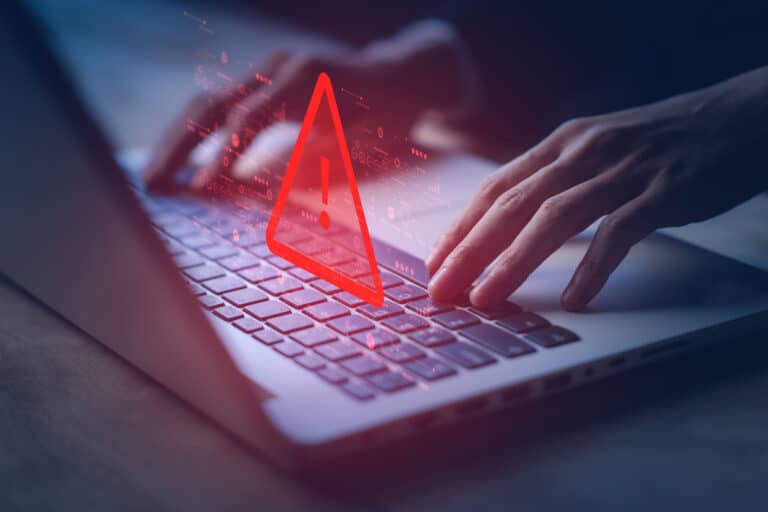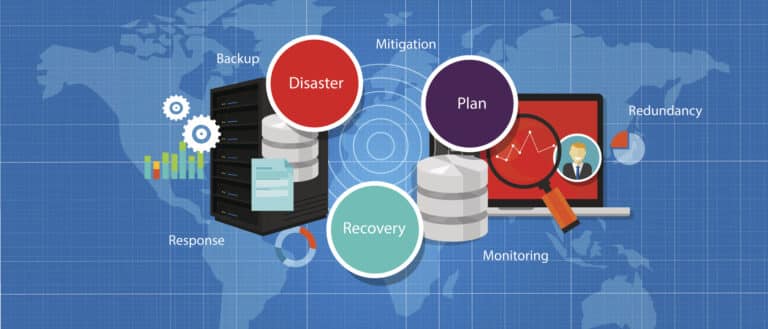Understanding the CISO Role
Understanding the role of a Chief Information Security Officer (CISO) is crucial in planning for cyber risk management in today’s ever-evolving cybersecurity landscape. CISOs play a pivotal role in providing strategic guidance and expertise to organizations, particularly concerning cyber risk management, compliance, and overall security posture. They bridge the gap between technical complexity and business objectives, ensuring that security measures align with the organization’s goals and resources.
Introducing the vCISO Role
Unlike a typical CISO, a virtual CISO (vCISO) or fractional CISO offers flexibility and expertise without the overhead costs associated with maintaining an in-house C-suite executive. vCISOs serve as trusted advisors to executive leadership, offering valuable insights into emerging threats and industry best practices. Their ability to communicate complex security concepts in a comprehensible manner enhances collaboration across departments. Understanding the CISO role (virtual or not) is essential for organizations looking to navigate the complexities of modern cybersecurity challenges effectively.
Advantages of a vCISO
One of the key advantages of engaging a vCISO is their ability to offer diverse industry experience, enabling them to bring fresh perspectives and best practices from various sectors. This approach allows them to tailor security strategies specific to an organization’s unique challenges and objectives. As such, organizations can benefit from the specialized focus and dedication that a vCISO brings while avoiding a single system view that might arise from a dedicated resource. With cyber threats constantly evolving, having an adaptable view can be instrumental in effectively safeguarding sensitive data and systems.
vCISOs must also maintain a keen awareness of emerging threats and industry trends while being flexible enough to adapt quickly in an ever-evolving landscape of cyber risks. Their ability to balance these responsibilities with broad expertise makes vCISOs indispensable assets for any modern enterprise seeking to safeguard its digital infrastructure.
Benefits of Engaging a vCISO
One of the key benefits of engaging a vCISO is their ability to provide expert guidance and strategic direction tailored to the specific needs of an organization. vCISOs bring a wealth of diverse industry experience, allowing them to offer valuable insights into emerging threats and best practices.
Furthermore, vCISOs can help organizations access top-tier security talent that they may not have been able to afford otherwise. By leveraging the expertise of a vCISO, companies can benefit from cutting-edge security solutions and proactive risk management strategies without having to invest in full-time senior executive salaries. Overall, by engaging a vCISO, organizations gain access to specialized knowledge and resources that can significantly enhance their cybersecurity posture.
Cost-Effective Expertise
The need for cost-effective expertise is more crucial than ever. vCISOs offer a strategic solution by providing specialized cybersecurity knowledge without the hefty price tag associated with hiring a full-time senior executive. By leveraging the expertise of vCISOs, organizations can benefit from tailored guidance and support in developing and implementing robust security strategies, all within a budget-friendly framework.
The appeal of cost-effective expertise doesn’t just end with financial savings; it also extends to the agility and adaptability that vCISOs bring to the table. Their flexibility allows organizations to scale their cybersecurity efforts based on specific needs and the dynamic nature of cyber threats. This approach empowers businesses to access top-tier talent on a temporary or part-time basis, ensuring that they obtain high-quality security leadership without being locked into long-term commitments or exorbitant salary packages. Ultimately, embracing cost-effective expertise through vCISO services enables organizations to fortify their defenses against cyber threats while maintaining fiscal prudence—a win-win scenario in today’s competitive business environment.
Long Term Security Strategy
While many businesses have traditionally focused their cyber risk mitigation on short-term fixes and reactionary measures, the role of a dedicated vCISO has emerged as a critical asset in implementing sustainable security strategies. A forward-thinking vCISO can help organizations develop comprehensive security frameworks that anticipate future threats, address regulatory compliance, and align with long-term business objectives.
vCISOs can guide organizations in establishing robust controls for data protection, incident response planning, and risk management that extend beyond immediate concerns. This long-term perspective enables businesses to adapt to emerging technologies and evolving threats while fostering a culture of continuous improvement in cybersecurity practices. Leveraging their expertise and insights from various industries, vCISOs can drive the integration of security workflows into strategic business processes – ensuring that security becomes an integral part of organizational decision-making. In an age where cyber threats loom large and regulations continue to tighten, the foresight provided by a vCISO is paramount for organizations striving to secure sustained success in the digital arena.
Aligning with Business Objectives
The traditional approach of viewing cybersecurity as a standalone function is no longer effective, as it fails to address the overarching goals and priorities of the business. By integrating cybersecurity into the fabric of business operations, vCISOs can ensure that security measures are not only robust but also conducive to achieving strategic business outcomes.
Aligning with business objectives allows vCISOs to communicate more effectively with key stakeholders across the organization. When security strategies are aligned with broader business goals, it becomes easier for vCISOs to gain buy-in from senior executives and decision-makers. This alignment fosters a culture of collaboration and shared responsibility, ultimately leading to more effective risk management and compliance practices. It enables vCISOs to demonstrate how cybersecurity initiatives directly impact revenue, customer trust, and overall operational efficiency – all critical components of a thriving business environment.
Enhanced Risk Management
Effective cyber risk management has become more crucial than ever for businesses. The traditional approach of simply reacting to security incidents is no longer sufficient given the increasing sophistication of cyber threats. Enhanced risk management involves proactive measures such as continuous monitoring, threat intelligence analysis, and comprehensive vulnerability assessments. By adopting a forward-thinking approach to risk management, organizations can better anticipate and mitigate potential threats before they escalate into major security breaches.
Enhanced risk management requires a shift in mindset from viewing cybersecurity as merely a technical issue to recognizing it as a critical business concern. This means aligning risk management strategies with overall business objectives, integrating them into the decision-making process at all levels of the organization. From understanding emerging compliance requirements to assessing third-party vendor risks, a holistic approach to risk management can help companies stay ahead while also enhancing their overall operational resilience.
Conclusion
As the digital landscape becomes increasingly complex and challenging to navigate, the role of vCISOs is growing in importance and set to become even more crucial. Their ability to provide strategic guidance, risk management expertise, and oversight of security operations will be essential in safeguarding organizations against evolving cyber threats. Additionally, their unique position allows them to bridge the gap between technical teams and executive leadership, ensuring that cybersecurity is integrated into overall business strategy.
vCISOs will need to continually adapt their approach to address new security concerns while also fostering a culture of continuous improvement and resilience within their organizations. By leveraging their experience and knowledge in cybersecurity best practices, vCISOs can drive innovation and enable sustainable growth while mitigating potential risks. As such, the demand for skilled vCISOs is likely to soar in the coming years as businesses seek proactive measures to protect their valuable assets from cyber threats.
Contact us today to find out more about the benefits of utilizing a vCISO!



